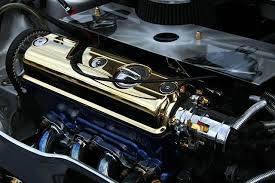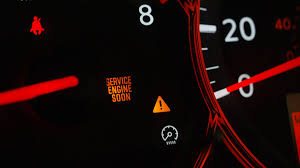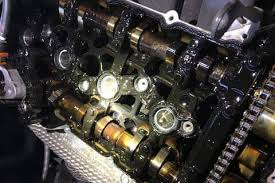What are the most common causes of engine failure?
Contemporary vehicles are mesmerizing pieces of machinery and are made making use of latest technology and a lot of expertise. Every next model is expertly engineered to outdo the previous versions in terms of both the fuel efficiency and performance and engines are at the top of the list in this regard.
However, there is no denying the fact that care is needed to maintain these engines in the best working condition. But it is also a fact that engines are machinery and there is no guarantee until when a machinery is going to stop working. Sometimes, not taking care of some certain aspects and negligence in nipping the evil from the bud about engine problems can lead them to a complete failure.
In order to avoid the curse of vehicle engine failure, we have compiled a list of the most common factors that are responsible for car engine failures. Do not cast a glance if you really want to get stuck in the middle of nowhere unexpectedly. However, if you seriously care about your engine then what are you waiting for? Scroll down and save yourself from any discomfort in the future. These causes have been outlined by replacement car engine experts so its worth paying attention.

Overheating
This is one of the most common failures that we come across. When we go into a repair facility to inspect a vehicle that has an engine issue, one of the first things that we check is the cooling system. Specifically, we check the coolant level and for any signs of leaks. Usually, when we look at an overheated engine, the event that started the failure can be traced back to low coolant levels, a faulty water pump, or a leaking radiator (or one of its hoses). In addition, a defective thermostat and inoperative cooling system fan can cause an engine to overheat.
This is one of the reasons why it is so important to keep an eye on the temperature gauge. It’s important to know what’s normal for your vehicle. For instance, if the temperature gauge on your car is normally right below the halfway point, any deviation is a good clue that something is amiss. Also, periodically checking your parking area for any signs of leakage would be a good idea too.
Lack of Maintenance
This is pretty self explanatory. Not keeping up with the manufacturer’s recommended service intervals will hasten the demise of an engine. All car companies provide recommended maintenance schedules to their customers. Failure to follow these guidelines can be detrimental to the health of your engine. Most professional technicians that I know will change their oil and filter a little before the recommended mileage or date. For instance, if the service interval says the next oil change is due in 7500 miles, he or she may change the oil at 5500 or 6500 miles. Changing the oil and filter on a regular basis is a relatively inexpensive way to help keep your engine mechanically sound.

Detonation
Detonation is the outcome of inappropriate combustion in the engine that generates a large amount of pressure and heat in the combustion chamber. According to the auto experts, the reason behind denotation can be the loss of the exhaust gas recirculation system.
Moreover, other issues such as bad fuel, improper ignition timing, off beam spark plug gaps and raised engine operating temperature can also cause denotation. If you find any of these signals by your vehicle, get it checked from some expert mechanic in time.
Sinking the Car
Well, not literally of course. Drowning your car means driving through heavy rain or making it pass through deep standing water along the road. Some drivers take it as fun but less do they realize that this can potentially cause severe harm to your car engine, especially if it has a modified air intake.
In such a case, if water flows through the intake manifold, the result can be disastrous for your vehicle’s engine. Water ends up twisting the piston rods thereby damaging your engine and leading it to failure.

Lack of Lubrication
Oil pump failures are not as common as they used to be, but they still happen. This could be an oil pump that is simply not producing the flow that is needed to properly lubricate the moving parts of the engine, or a pressure relief valve that is stuck in the open position. Both of these conditions will cause lower than normal oil pressure. Conversely, if the pressure relief valve is stuck in the closed position, engine oil pressure can rise and eventually cause engine damage. Since the pump pulls the oil from the sump, we have to remember that the oil coming into the oil pump has not been filtered by the oil filter. This is another reason to change your oil on a regular basis.
Another form of lack of lubrication is lower than normal engine oil levels. Oil that is lower than normal may not properly lubricate areas of the engine that rely on a steady supply of oil to operate correctly. In addition, the lower level of oil has to work harder to remove deposits, acids and other contaminants that are present under normal engine operation. The correct amount of oil is also important because it helps remove heat that is produced during each combustion event.
Since a good number of modern cars will have low oil level indicators or sensors that will alert the driver when the oil level is too low, this isn’t as big of a deal as it used to be. For peace of mind, though, I would recommend manually checking the oil level. If the engine does not have a dipstick you will have to follow the manufacturer’s instructions regarding proper ways to check the oil.
As a precaution I would also recommend that you or another person check the engine oil level after getting your vehicle serviced. Over the years I have repeatedly inspected engine failures that were due to the technician or lube specialists not adding the correct amount of oil to the engine after the service was completed.
Ignoring the Engine Oil Light
All the cars come with warning lights unless you manufacture your own car. Jokes apart, warning lights are basically the indicators about any problems and issue your car might be facing.
The engine oil light is one thing you must keep casting a glance at, after short intervals. When you notice that engine oil light is on, you must realize that there is some sort of problem which needs fixing. This light can also be an indicator that it is time to replace the catalytic converter or oxygen sensor. However, any carelessness in this matter can lead your vehicle engine to failure.
Paying No Attention to Cooling System
If you do not remember the last time you flushed your vehicle’s engine coolant then the engine is at a high risk of failing. The auto experts are of the view that after every 30,000 miles, the engine coolant must be flushed.
This varies vehicle to vehicle but it usually takes 2 to 3 years on average to hit that much distance. Although it is a too long time duration to get worried, yet waiting until the coolant system gets deteriorated would not be the best strategy. Engine overheating is a symptom of deteriorated coolant.